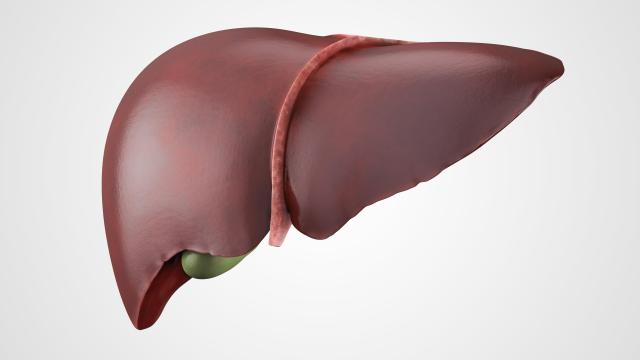Our liver stays plenty youthful even as we get older, new research this week suggests. Using a form of radioactive dating, the researchers estimate that the average age of our liver’s cells is around three years. Some cells seem to live longer than others, however, a finding that may one day help scientists better understand how and why conditions like liver cancer can happen.
The new study was led by scientists at the Dresden University of Technology in Germany. They tried to estimate the longevity of liver cells previously collected from more than 30 people who had died of various causes between the ages of 20 and 84. To do this, they relied on a technique called retrospective radiocarbon birth dating, which was developed in the early 2000s.
Levels of radiocarbon activity in the environment have increased and decreased over recent decades, thanks to the start and end of above-ground nuclear weapons testing. And because trace amounts of radiocarbon in the environment can end up in the DNA of plant and animal cells, scientists have been able to use this environmental radiocarbon as a sort of measuring stick for a cell’s age. The older a cell is, the more radiocarbon likely to be in its DNA.
When the team dated the liver cells from their sample group, they found a consistent pattern no matter the age of the person: Most cells were young and around the same age. They further estimated that most liver cells replace themselves about once a year, and on average, our liver stays under the age of three. The team’s findings were published Tuesday in Cell Systems,
The liver is already known to be hardy and fast-healing — an important attribute for an organ that has to constantly filter potentially harmful toxins out of our body. But the researchers say that less is known about how the liver renews itself and whether this ability to heal declines over time. Their findings suggest that the liver can stay young even in an ageing body.
At the same time, there do seem to be relevant changes in the liver as we get older. Some cells in the liver can carry more than two sets of chromosomes and function just fine, unlike most cells in the body. The team found that these DNA-loaded cells also appear to live much longer than other liver cells — up to a decade — and that people’s livers seem to collect more of these cells over time. So they suspect that this change may help keep our livers healthy. And if that’s true, then it could also be true that people’s risk of liver-related health problems can rise when the process goes wrong.
“As this fraction gradually increases with age, this could be a protective mechanism that safeguards us from accumulating harmful mutations,” said study author Olaf Bergmann, a lead researcher at the university’s Centre for Regenerative Therapies Dresden, in a statement. “We need to find out if there are similar mechanisms in chronic liver disease, which in some cases can turn into cancer.”
The team’s findings will have to be validated by other research teams before they should be taken as gospel. But a similar study of theirs earlier this year found evidence that certain brain cells can renew themselves even as we get older, which other research has suggested as well. They next plan to study whether heart cells in people with chronic heart disease can still regenerate.
